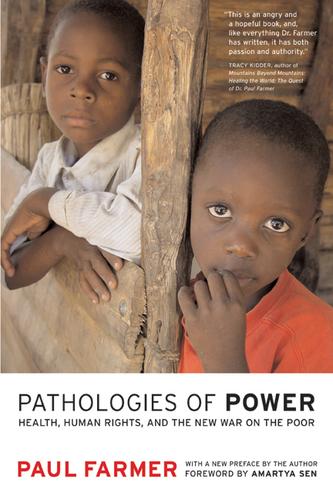PublicHealthInnit reviewed Pathologies of power by Paul Farmer (California series in public anthropology -- 4)
Review of 'Pathologies of power' on 'Goodreads'
4 stars
This is a book of two halves - in the first, Farmer demonstrates the role of structural violence in the lives of the poor and dispossessed through case studies in Mexico, Russia and Haiti. These are excellent, moving and detailed expositions which demonstrate that the tragedies that befall countless marginalised groups in the world are not accident or happenstance, but systemic problems caused the neoliberal capitalism which dominates global and local affairs. He argues very persuasively that in thinking of healthcare for these groups, we must give more consideration to human rights in their broadest sense and to social justice. [Disclaimer: I must confess that in my case he is preaching to the converted so this may have coloured my view of the book]
The second half of the book discusses a sort of theoretical framework within which to view all the issues. This half I found much more disappointing than the first. Farmer is a great pains to discuss his ideas within a catholic Liberation Theology, though all the points may be recognised by secularists simply as social justice - to justify it as theology, the writing seems to be somewhat laboured in what is otherwise fairly concise discussion.
My bigger problem is in the solutions Farmer suggests. Having just spent the first half of the book discussing structural violence and the health impacts of socio-economic policy and global inequality, the entire focus of his answers is upon access to healthcare. While he advocates persuasively for the need to fund and provide healthcare for those who currently cannot access it, he does not explain why this must be the sole focus of such work. To deal only with proximal causes of these issues seems to be at odds with the discussion of more distal causes enumerated in the first half of the book. It ends up reading very much like it is written by someone schooled in the medical model of health, perhaps surprising for an author who is also an anthropologist.
Having said all that, the first half is really excellent while the second half is an interesting discussion even if I ended up disagreeing somewhat.

